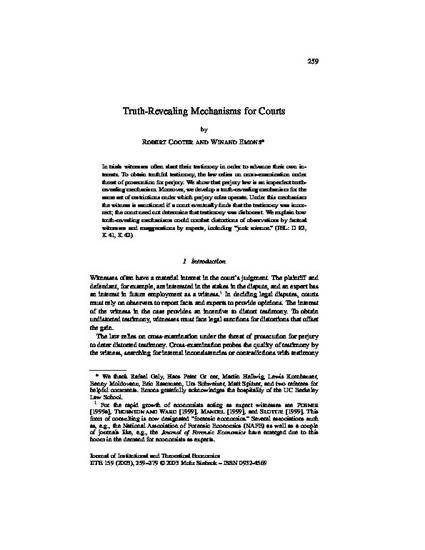
Article
Truth-Bonding and Other Truth-Revealing Mechanisms for Courts
Journal of Institutional and Theoretical Economics
(2003)
Abstract
In trials witnesses often slant their testimony in order to advance their own in- terests. To obtain truthful testimony, the law relies on cross-examination under threat of prosecution for perjury. We show that perjury law is an imperfect truth- revealing mechanism. Moreover, we develop a truth-revealing mechanism for the same set of restrictions under which perjury rules operate. Under this mechanism the witness is sanctioned if a court eventually finds that the testimony was incor- rect; the court need not determine that testimony was dishonest. We explain how truth-revealing mechanisms could combat distortions of observations by factual witnesses and exaggerations by experts, including “junk science.”
Keywords
- truth-revealing,
- truth bonding,
- legal process,
- evidence
Publication Date
March, 2003
Citation Information
Robert D. Cooter and Winand Emons. "Truth-Bonding and Other Truth-Revealing Mechanisms for Courts" Journal of Institutional and Theoretical Economics Vol. 159 (2003) p. 259 - 279 Available at: http://works.bepress.com/robert_cooter/79/
